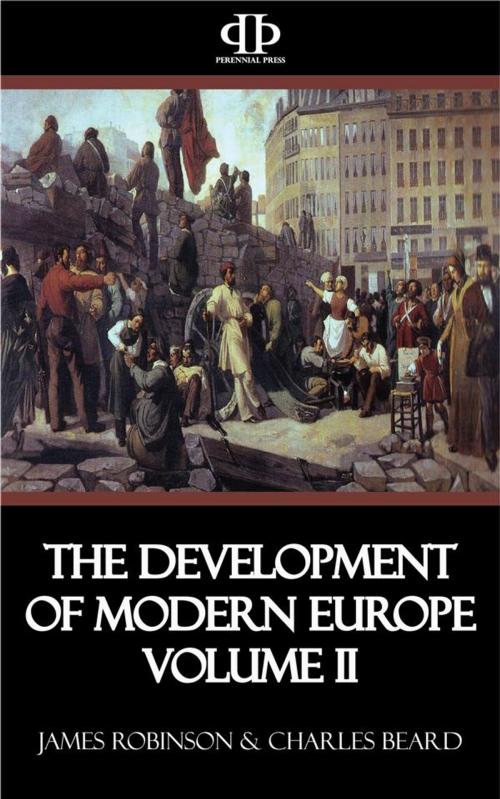The Development of Modern Europe Volume II
From the Fall of Metternich to the Eve of World War I
Nonfiction, History, Modern, 19th Century, Germany, World History| Author: | James Robinson, Charles Beard | ISBN: | 9781518365799 |
| Publisher: | Perennial Press | Publication: | January 8, 2016 |
| Imprint: | Language: | English |
| Author: | James Robinson, Charles Beard |
| ISBN: | 9781518365799 |
| Publisher: | Perennial Press |
| Publication: | January 8, 2016 |
| Imprint: | |
| Language: | English |
When, in 1792, the Austrian and Prussian armies had advanced toward Paris with the object of freeing Louis XVI from the restrictions placed upon him by the National Assembly, the French, roused to fury, had deposed and executed a ruler who was convicted of plotting with foreign powers to maintain his authority. In 1814 the allies placed on the throne the brother of Louis XVI, a veteran emigre, who had openly derided the Revolution and had been intriguing with other European powers for nearly twenty years to gain the French crown. Yet there was no demonstration of anger on the part of the nation, no organized opposition to the new king. The French were still monarchical at heart and had quietly submitted to the rule of Napoleon, which was no less despotic than that of Louis XIV.
There was, however, no danger that Louis XVIII would undo the great work of the Revolution and of Napoleon. He was no fanatic like his younger brother, the count of Artois. In his youth he had delighted in Voltaire and the writings of the philosophers; he had little sympathy for the Church party, and six years' residence in England had given him some notion of liberal institutions. His sixty years, his corpulence, his gout, and a saving sense of humor prevented him from undertaking any wild schemes of reaction which might be suggested to him by the emigrant nobles, who now returned to France in great numbers. Even if he had been far more inclined to absolutism than he was, he could hardly have been tempted to alter the administration which Napoleon had devised with a view of securing control of everything and everybody. The prefects and subprefects, the codes, the Church as organized under the Concordat of 1801, the Legion of Honor, the highly centralized University, even the new nobility which Napoleon had created, were all retained with little or no change...
When, in 1792, the Austrian and Prussian armies had advanced toward Paris with the object of freeing Louis XVI from the restrictions placed upon him by the National Assembly, the French, roused to fury, had deposed and executed a ruler who was convicted of plotting with foreign powers to maintain his authority. In 1814 the allies placed on the throne the brother of Louis XVI, a veteran emigre, who had openly derided the Revolution and had been intriguing with other European powers for nearly twenty years to gain the French crown. Yet there was no demonstration of anger on the part of the nation, no organized opposition to the new king. The French were still monarchical at heart and had quietly submitted to the rule of Napoleon, which was no less despotic than that of Louis XIV.
There was, however, no danger that Louis XVIII would undo the great work of the Revolution and of Napoleon. He was no fanatic like his younger brother, the count of Artois. In his youth he had delighted in Voltaire and the writings of the philosophers; he had little sympathy for the Church party, and six years' residence in England had given him some notion of liberal institutions. His sixty years, his corpulence, his gout, and a saving sense of humor prevented him from undertaking any wild schemes of reaction which might be suggested to him by the emigrant nobles, who now returned to France in great numbers. Even if he had been far more inclined to absolutism than he was, he could hardly have been tempted to alter the administration which Napoleon had devised with a view of securing control of everything and everybody. The prefects and subprefects, the codes, the Church as organized under the Concordat of 1801, the Legion of Honor, the highly centralized University, even the new nobility which Napoleon had created, were all retained with little or no change...















